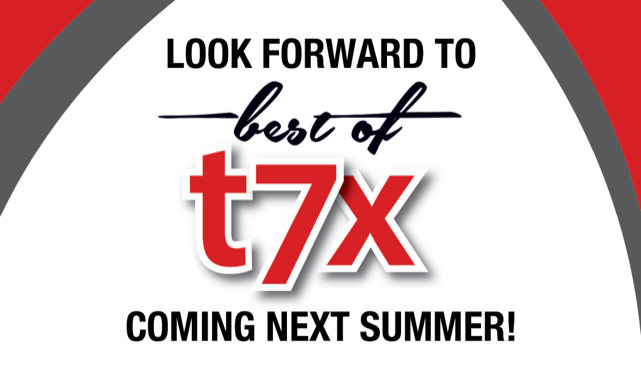
Conversations
Marriage & Millenials: While most young adults aren’t big on matrimony, the rest of their peers take it very seriously
January, 2020
Madison Anderson recalls being though the spin cycle of the relationship wringer a few times too many before she met Mr. Right. And when she realized she had finally landed a soulmate worth keeping, they both decided to make their union official. Her husband-to-be suggested the location. As for the rest of their nuptials, let’s just say that it hardly smacked of theology or tradition.
“Absolutely not,” recalled Anderson, who works as a retailer in Spruce Grove. “We got married in our pajamas in his grandfather’s back yard.”
A Skeptical Demographic
There was a great deal of family pushback over the event, but at least it fit the unorthodox inclinations of Anderson and her new husband. As millennials, the couple took part in a ceremony that would receive a thumbs-up from their generational peers: a skeptical demographic both praised and criticized for challenging the wisdom of the once-dominant boomer generation. Comprised of people born between 1981 and 1996, it’s an age group with an entirely different set of social values that favour such platitudes as inclusivity over elitism and environmental friendliness over industrial progress.
As for the institution of marriage, it’s not exactly a topic that thrills most Canadian millennials. Recent results from pollsters Angus Reid reveal that roughly one in three young adults have no plans to tie the knot. While Statistics Canada found that roughly 40 percent of young adults were living in common-law relationships, almost twice the number assessed in 1981, few of them expressed a willingness to marry. Whether by choice or by fate, the remaining 60 percent of respondents are still single.
Marriage As Status Symbol
But for the rest of the pack, that’s where the cynicism ends. It turns out millennials who do marry approach that next step in their relationships earnestly, especially if they’ve already been cohabiting for a while, a lifestyle for roughly less than half of Canadians who plan on getting hitched. While doing it out of love remains high on the checklist, so do other concerns, especially income.
A 2014 study by Hamilton-based think tank Cardis underscored that distinct link between marriage and economic class. Their findings revealed that 86 percent of affluent couples were married, compared to 49 percent in the middle class and 12 percent in the lower class. Interestingly, the research paper discovered that demographics had no influence in the findings. Marriage statistics among well-off millennials and boomers were roughly the same. The results indicated that partners who don’t marry mostly stay together more out of necessity than anything else. On the other hand, married couples enjoy a higher social status, are more successful financially and much happier.
Lower Divorce Rates
That’s encouraging for matrimony-minded young adults increasingly aware of divorce rates among boomers. While the divorce rates among Canadian millennials are sketchy at best, Statistics Canada discovered that the mean age for splits was 44 for men and 41 for women. A more concise U.S. survey according to Bloomberg assessed the millennial divorce rate was slightly more than 10 percent, with boomer breakups skyrocketing to nearly 30 percent, more than triple the rates recorded in 1980.
Besides cohabiting, marriage-minded millennials tend to wait longer before taking the plunge, usually around the time they hit their 30s. It’s a far cry from 1972 when the average age of Canadian grooms was around 25, with brides being roughly two years younger.
A recent survey from Brigham Young University’s School of Family Life revealed that the vast majority of respondents believed that those who married later signified greater maturity and greater determination to make the relationship work. Other advantages to delaying the nuptials included ensuring personal goals were achieved first, buying more time to secure themselves financially and taking the time to assess the qualities of a potential spouse.
“I think millennials are waiting because women have more choice than ever before,” said psychologist Jennifer B. Rhoads in a study conducted by U.S. relationship researchers The Gottman Institute. “This shift in the view of marriage as now a luxury rather than a necessity has prompted women to be more selective in choosing a partner.”
True Equality
A millennial’s decision to marry might sound more strategic than romantic, but taking the time to decide on a partner’s marital eligibility once a person’s own goals are solidified seems to be working. That both partners are breadwinners is a bonus, implying true equality. That’s often reflected in millennial weddings these days, with the male partner getting equally involved in the process, which used to be almost the bride-to-be’s exclusive domain. And with millennials being more budget-conscious, $30,000 extravaganzas are rare, with the average gathering more likely to cost less than $10,000.
Seanna Collins, a government-appointed marriage commissioner based in Spruce Grove, says the bulk of her clientele still prefer big weddings, but she’s noticed one particular trait that’s common among the millennials who hire her for their nuptials.
“They want to do everything by text,” says Collins, who’s been in the knot-tying profession the past three years. “I’m finding I have to text them to check their email. I do everything by email and I don’t do it as a generational thing, it’s just that I want to do it all in writing. It’s important from a business end of things. It’s in writing and I have that paper trail.”
Then there are the more nuanced stipulations that tend to reinforce the stigma of millennial values. There’s no shortage of anecdotes involving couples insisting that all materials that go into the affair are environmentally friendly. Many opt for gender-neutral references, preferring to be addressed as spouses instead of husband and wife. And others with family and friends from other ethnicities take great pains to ensure that everything to do with the wedding doesn’t offend them on cultural grounds.
When it comes to officiating at some of the bigger weddings, Collins has noticed that some younger clients aren’t as likely to use the words bride and groom in any of the verbiage they deliver. Often, she suggests phrases like “You may seal the union with a kiss.”
Still, she has noticed that with big weddings, younger folks are bent on having the entire nuptial package presented as one big bash. “Some couples just want it short and to the point,” she said. “They don’t see the ceremony as the big deal, they see the party as the big deal. A lot of them are still interested in it being the party of the year.”
Anderson’s own wedding, however unusual, was still rather low key, but no less a precious way to share something special with the right guy. “After some terrible relationships, I found someone who was similar to me, had the same world view, and the same ideals and we just clicked,” she said. “I think that if I hadn’t found that person, I wouldn’t have married.”









